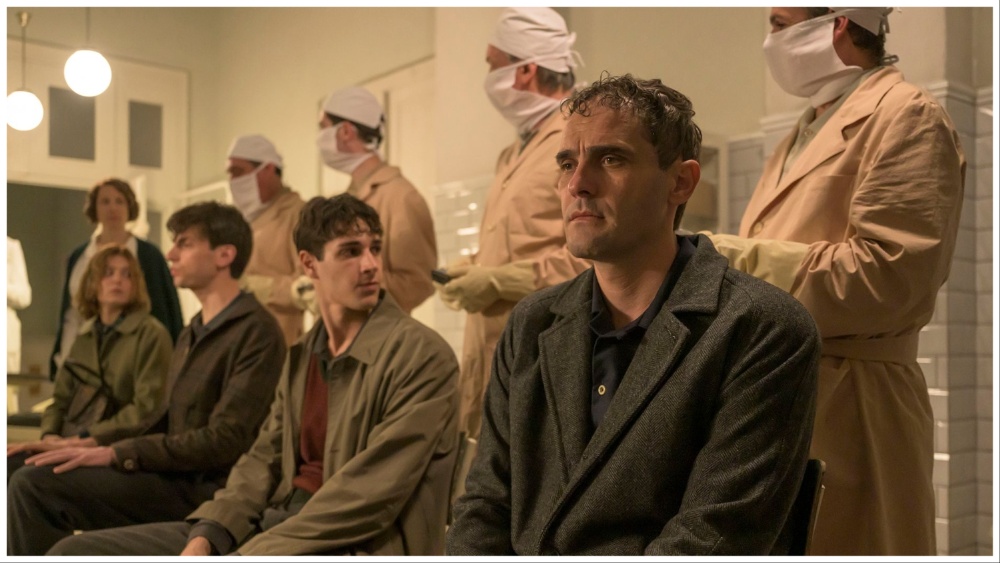Black Nights Film Festival Artistic Director Proceeds With Optimism
As the Black Nights Film Festival in Tallinn, Estonia, prepares for its 27th edition, Variety spoke with artistic director Tiina Lokk about its ambitions and coming highlights.
“If you see the festival like a big building, then all the walls are in and the building is ready, but some rooms are not furnished yet,” Lokk says, before adding philosophically. “I don’t believe that festivals can ever be completely ready. Because at the moment when I say, ‘Yes, now everything is ready,’ I’ve become like a stone and festivals, like show business in general, have to be always in the moment, changing.”
Tallinn boasts an impressive program this year featuring 117 world and international premieres. The opening film “The Guardians of the Formula,” directed by Dragan Bjelogrlić, is a co-production featuring a number of countries which are part of the “Focus” program, highlighting work from Serbia and South East Europe countries, Slovenia, Croatia, Montenegro and North Macedonia. There is also a retrospective of the Yugoslav Black Wave cinema from the 60s and 70s, featuring radical and darkly humorous critiques of the prevailing socialist society.
The main competition gathers a diverse range of titles from Emma Dante’s (“The Macaluso Sisters”) third feature “Misericordia,” to Mexican director Jorge Cuchi’s #metoo drama “Bad Actor.” Canadian filmmaker Karl R. Hearne’s “The G” stars Dale Dickey as an elderly alcoholic who turns to revenge after being targeted by a corrupt guardianship process. Politics are inescapable as Ukrainian director Ivan Tymchenko’s “Oxygen Station” depicts the fate of a Crimean dissident in the USSR of the 1980s. Some films are in danger of becoming inadvertently politically sensitive just because of their country of origin and the current febrile state of the world, as in the case of the Israeli film, Idan Hubel’s pregnancy drama “Ten Months.”
But Lokk is used to navigating political minefields. As well as the Israel-Gaza conflict (which broke out after the program had been finalized), Lokk also lists other concerns: “Serbia and all these hot spots in the Balkans, plus Armenia and Georgia, Armenia and Russia.” Hard decisions had to be made: “We decided not to take any Russian films made with Russian state money.” But Lokk is optimistic that cinema can contribute to the discussions in this difficult period. “There are a lot of different kinds of problems but we’re getting a bunch of films that are very much connected to our days,” Lokk says. “We are somehow joined together in the world with all our problems.”
This is perhaps best represented by the Rebels With a Cause sidebar which features eight world premieres from the experimental to the quirky: all challenging the norms. One intriguing title comes from the Montenegrin director Nemanja Becanovic: “Supermarket” tells the story of a man hiding out like some latter day Robinson Crusoe in the shop of the title, when all the customers have gone home. The debut from the Héraud brothers, the French comedy “The End (artificial fragments of humankind),” addresses postmodern life eaten whole by technological innovation.
First time filmmakers are especially important to Lokk and the festival boasts a dedicated sidebar with 18 feature debuts: “As a university teacher of cinema, I know that first features demonstrate the real potential of young talents, before they are overly influenced by financial, political or other considerations.”
Although Black Nights has been afforded A-list status and has a good strategic position as a precursor to Berlin, Lokk doesn’t subscribe to the ethos of unlimited growth: “I never wanted to have an A-list festival. I never wanted to grow and grow and grow. Right now, the festival is like a village in the middle of the city and we know each of our guests. That feeling, that energy is very important to us. I never want the festival to become anonymous.”
Addressing the future of cinema more broadly, the threats posed by AI and streaming platforms, Lokk is determinedly optimistic: “I’m not afraid,” she says. “During my lifetime cinema was dying out, I don’t know how many times. With streaming platforms, we used them during COVID, but the feeling is so different. If you’re watching at home even with your best friends, it doesn’t compare to going to a cinema: the big screen, the sound and you feel with your body how other people are reacting. This is something which is never going to be lost.”

